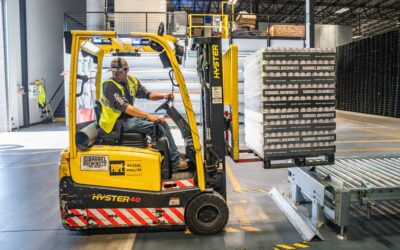Disjointed systems are one of the issues faced by Waste and Recycling management companies. We explore how you can solve the issues surrounding having a disjointed system.
The problems
- Do you find your waste management systems aren’t joined up?
- Do you have multiple processes that don’t talk to each other?
- Is this lack of integration slowing your business down?
- Do you have manual operations reporting at any stage in your process?
- Do you complete operational and financial compliance tasks manually?
How integration can help
Integration means a connected organisation, one in which data and process provide accuracy, control and automation of tasks. There is a seamless flow of information to effectively plan, execute and adapt.
Integration means…
- All parts of the business can talk to each other, speed tasks up, ensure accuracy and share information. This delivers correct insight to the business, enhances customer service and identifies areas for innovation and growth.
- All application areas operate as one system and data is maintained in a unified manner. This allows faster transactions, real time information, less data administration, and up to date and accurate position of the organisation.
- Control of data in business process and transactions. This ensures intuitive, effortless workflows that link teams.
- Automated activities between departments. This frees users to work on value added activities with information which increases productivity.
- One set of data is used throughout the entire operation and linked business processes. This ensures that each department’s tasks are executed accurately in sequence.
- The output of valuable real time information. This enables accurate, trustworthy business intelligence.
- Automated accounting cycles at the end of each transaction. This increases efficiency of financial reporting and up-to-date position of the company.
- You have the foundation for fast, precise and correct operations which cover all aspects of the business. This means you have the capacity to focus on where and how to improve, rather than being bogged down by manual administration and verification of disparate data from different sources.
- You can focus on key aspects for innovation, scale and growth such as greater automation, increased capacity, competitive advantage and key strategic enablers.
- With core processes and operations linked, automated and delivering correct data and information means you can work on planning and innovating for better outcomes caused by the disruption of external factors and respond to your rapidly changing needs.
- That you can move from ad-hoc data management, processes and reporting to enlightened and systematic understanding of everything in your business. Once complete, the focus is then on utilising further information and technologies to become adaptive in any situation and empowered for change and leadership.
Integrate your systems with Waste and Recycling One (WR1)
Waste and Recycling One is a software solution that standardises, integrates, simplifies, and automates all your waste and recycling processes, to create efficiencies throughout the business.
Waste & Recycling Operations
ISB Global has developed Waste & Recycling One, a waste logistics and recycling materials software platform. WR1 is designed to command business process, instructions and activities of waste haulage and resource materials manufacturing. Manage hazardous and non-hazardous waste recycling operations. Monitor recycling, reprocessing and refurbishing processes. And optimise inventory for sales of finished goods.
Find out more about integrating your legacy systems or contact us to discuss your specific needs.






